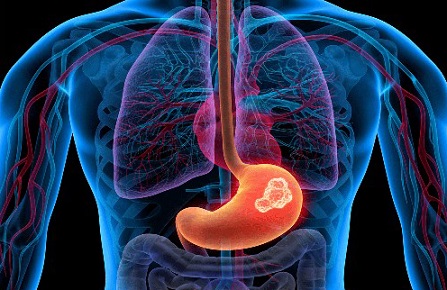Nikhil Prasad Fact checked by:Thailand Medical News Team Jun 22, 2024 10 months, 3 days, 19 hours, 31 minutes ago
Cancer News: Gastric cancer, commonly known as stomach cancer, is a significant health issue globally, being the fifth most common type of cancer. It caused around 770,000 deaths worldwide in 2020 alone. In South Korea, it remains the leading type of cancer among men and the fourth most common cause of cancer death overall.
 SMARCD3: A Key Player in Gastric Cancer Progression
What is SMARCD3?
SMARCD3: A Key Player in Gastric Cancer Progression
What is SMARCD3?
SMARCD3, a protein involved in the structure and function of cells, has been identified as a significant factor in the development and progression of gastric cancer. This protein is part of the SWI/SNF chromatin remodeling complex, which helps regulate how genetic information is accessed and used by cells.
The Study: Key Findings
A recent study by researchers from Gyeongsang National University College of Medicine-Republic of Korea that is covered in this
Cancer News report, explored how overexpression of SMARCD3 (having too much of this protein) influences gastric cancer. The research involved comparing gastric cancer cell lines and tissues to understand the role of SMARCD3 better.
Elevated SMARCD3 in Aggressive Cancer Types
The study found that SMARCD3 levels were significantly higher in signet ring cell (SRC) gastric cancer tissues compared to well-differentiated (WD) gastric cancer tissues. SRC gastric cancer is known for being more aggressive and having a poorer prognosis than other types.
Impact on Survival Rates
Patients with higher levels of SMARCD3 had significantly lower overall survival rates. This was particularly evident in patients with more advanced stages of cancer.
SMARCD3 and Cancer Progression
The research highlighted several critical ways in which SMARCD3 overexpression impacts gastric cancer:
-Promoting Cell Changes: SMARCD3 overexpression was associated with changes in cell behavior that are characteristic of cancer progression, such as increased cell proliferation (growth), migration (movement), and invasion (spread into other tissues).
-Epithelial-Mesenchymal Transition (EMT): EMT is a process where epithelial cells (cells that line surfaces and cavities in the body) become more like mesenchymal cells (cells that can move and invade tissues). This process is crucial for cancer metastasis. SMARCD3 overexpression was found to promote EMT, marked by decreased E-cadherin (a molecule that helps cells stick together) and increased levels of Snail and Slug (proteins that promote EMT).
-Activation of Signaling Pathways: The study showed that SMARCD3 overexpression activated several signaling pathways involved in cancer, such as the PI3K/AKT and MAPK pathways. These pathways are critical for cell survival, growth, and movement.
Laboratory Experiments
To understand SMARCD3's role b
etter, the researchers conducted various experiments:
-Cell Line Studies: They manipulated SMARCD3 levels in different gastric cancer cell lines. Overexpressing SMARCD3 in cells with initially low levels of the protein led to increased cell growth, movement, and invasion. Conversely, reducing SMARCD3 in cells with high levels of the protein decreased these cancerous behaviors.
-Microscopy Observations: Under the microscope, cells with overexpressed SMARCD3 appeared larger and more irregular, further indicating aggressive cancer behavior.
Potential for Therapy
The findings suggest that SMARCD3 could be a valuable target for new cancer treatments. By understanding how SMARCD3 promotes cancer progression, scientists can develop therapies that specifically target and inhibit this protein, potentially improving outcomes for patients with gastric cancer.
Conclusion
The overexpression of SMARCD3 in gastric cancer is a marker of poor prognosis and aggressive disease. This protein promotes cell changes and activates pathways that enhance cancer progression. Further research into SMARCD3 could lead to new, targeted treatments for gastric cancer, offering hope for better management of this challenging disease.
The study findings were published in the peer reviewed journal: Cancers
https://www.mdpi.com/2072-6694/16/12/2282
For the latest
Cancer News, keep on logging to Thailand Medical News.
Read Also:
https://www.thailandmedical.news/news/pd-l1-and-gastric-cancer
https://www.thailandmedical.news/news/hypothyroidism-confers-protection-against-risk-of-gastric-cancer
https://www.thailandmedical.news/news/human-circular-rna-hsa-circ-0000231-can-be-used-as-a-tumor-biomarker-for-gastric-cancer
